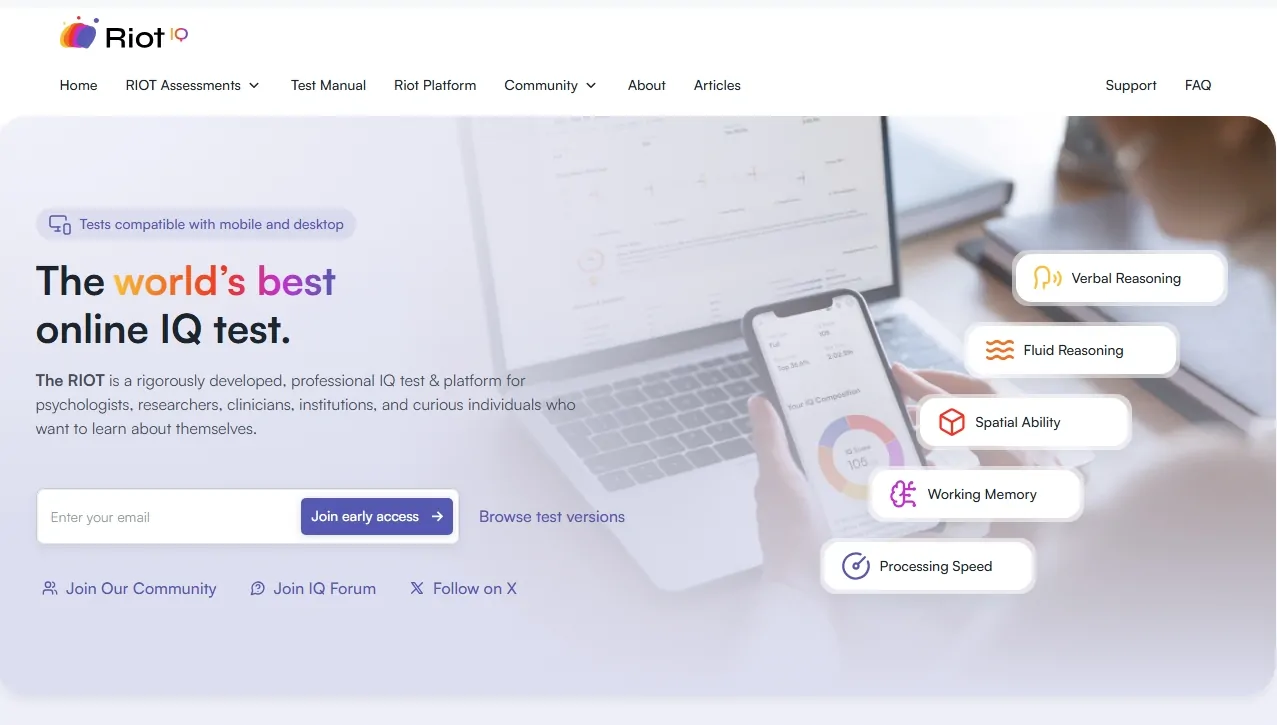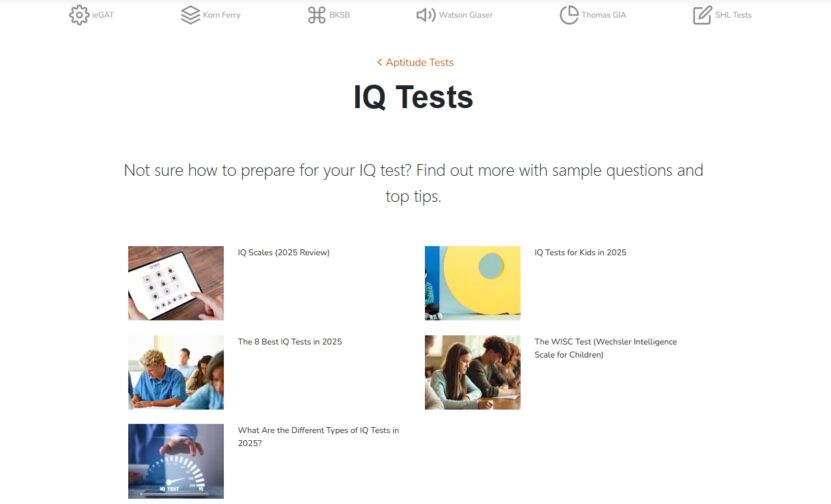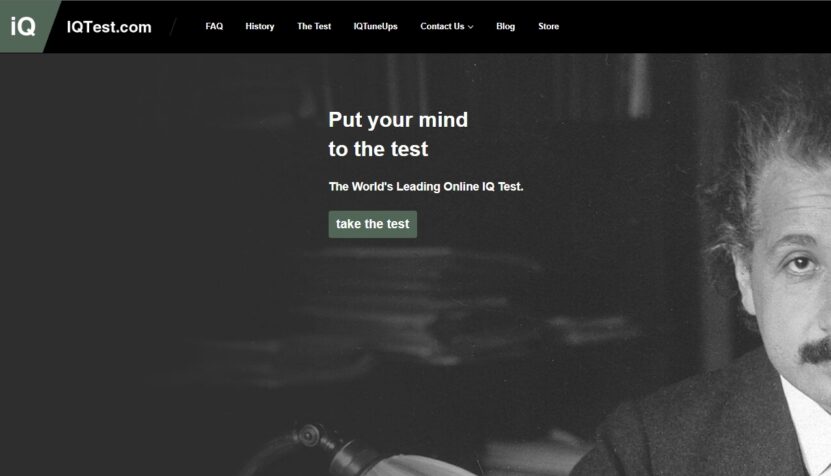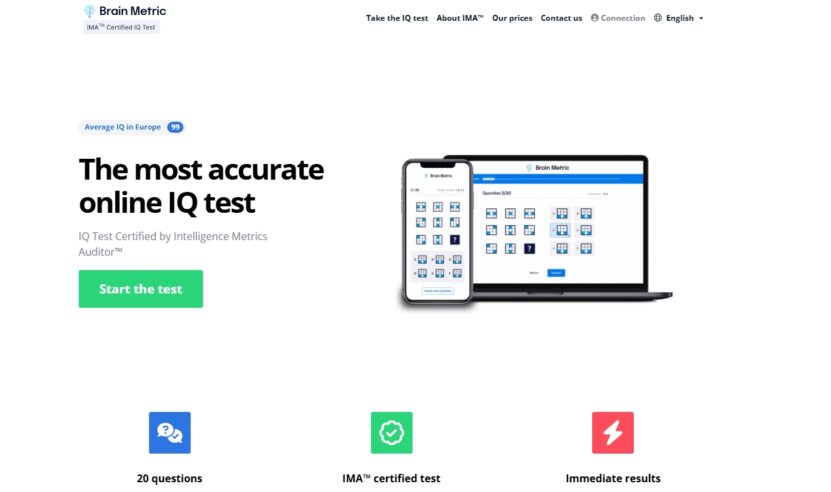
Share Post:
Online IQ tests have become a go-to tool for people curious about cognitive performance. Their rise is tied to growing interest in self-assessment and personal development in the digital age. Quick access, gamified interfaces, and instant feedback have all contributed to their popularity.
It’s important to distinguish between accessible tests and scientifically reliable ones. Some are designed more for entertainment, while others attempt to mirror professional assessments. Understanding what each test offers—and lacks—can help prevent misconceptions about intelligence.
Not all online IQ tests measure cognitive skills with the same accuracy. Some provide well-researched experiences, but many serve only as rough estimates or psychological games.
A few aim to be serious contenders for standardized intelligence testing, but only a handful deliver reliable insights.
1. RIOT (Reasoning and Intelligence Online Test)

RIOT is developed by the RiotIQ team, a group tied to academic institutions with a clear focus on bridging casual IQ testing with more structured assessments.
It doesn’t resemble the standard quiz-style formats that dominate online platforms. Instead, it presents an organized and research-based method focused on analytical reasoning.
Aimed at native English-speaking adults, RIOT tests users on verbal logic, pattern analysis, and abstract reasoning. Visual distractions are avoided, and the layout is clearly intended for focused problem-solving, not entertainment.
RIOT doesn’t try to inflate results or gamify intelligence. Every question seems designed to tap into measurable cognitive skill areas. While full validation studies are still underway, the test structure mimics those used in clinical or academic environments, creating a more grounded feel.
- Developer: RiotIQ Team with academic input
- Test Focus: Logical reasoning, verbal analysis, structured questions
- Audience: Adults fluent in English, particularly those wanting a serious experience
- Cost: Free access to score; some platforms may monetize further analysis
- Interface: Minimalistic and purpose-driven, without flashy visuals or misleading prompts
- Scientific Basis: Still under peer review, but based on test construction principles used in standardized tools
Promising effort with academic intent. Awaiting peer-reviewed validation for full credibility.
Best For: People seeking a well-structured IQ test without needing a licensed psychologist or in-person session.
2. Real IQ Test (Psychometric Success)

Real IQ Test follows a rigorous approach grounded in psychometric design. Inspired by theories promoted by Jordan Peterson and broader psychological testing frameworks, this test mimics many traits found in institutional IQ assessments. It focuses on abstract logic, spatial reasoning, and pattern recognition through a dense 100-question format.
Tests are timed, visually neutral, and carefully scaled to ensure consistency. Users are scored with claimed accuracy margins as tight as ±1.8%, making it one of the more reliable online options available. Unlike tests created for attention-grabbing results, this one doesn’t hand out exaggerated scores.
Reported correlations with formal IQ tests such as WAIS or Stanford-Binet are around 0.9, which suggests strong structural accuracy. Tests like these are often recommended for those wanting to assess general intelligence before applying for academic or professional evaluations.
- Developer: Psychometric Success
- Test Length: 100 questions
- Design Focus: Abstract reasoning, minimal distractions, professional layout
- Accuracy: ±1.8% claimed margin of error
- Scientific Strength: Correlation of 0.9 with traditional IQ assessments
- Availability: Online with free and paid options
Very high reliability among online IQ tests.
Best For: Users who want an experience close to professional testing without institutional limitations.
3. IQExam (McGill University)

IQExam is a product of McGill University’s research efforts. Unlike entertainment-based quizzes, it leans on academic structure and avoids vague or unscored formats. The test is built around matrix reasoning tasks—similar to Raven’s Progressive Matrices—which are widely used in clinical settings.
With 30 well-designed questions, IQExam delivers quick but thoughtful cognitive evaluations. Results are accessible immediately, with the option to pay for a more in-depth report. The design reflects research priorities—clean, efficient, and focused entirely on measuring abstract thinking.
One drawback may be its shorter length. While it offers speed and accessibility, fewer questions can reduce statistical accuracy. Still, academic backing gives it more weight than most online tests in circulation.
- Developer: McGill University Research Team
- Test Structure: 30 matrix-based questions
- Design Style: Academic, clean interface
- Scoring: Free summary, optional paid detailed report
- Focus Areas: Logical patterns, non-verbal intelligence, matrix reasoning
- Estimated Time: 10–15 minutes
Backed by a respected academic institution, giving it credibility despite a shorter question set.
Best For: Users seeking a balance between scientific seriousness and quick feedback.
4. IQTest.com

IQTest.com is one of the oldest and most widely taken online IQ assessments, claiming over 19 million users. It positions itself as a PhD-designed test offering both free and paid features. The free score gives a number estimate, while the paid report breaks results into 13 cognitive domains such as memory, reasoning, and language.
The platform doesn’t pretend to replace clinical assessments, but it does offer more structure than typical online quizzes. Most questions deal with visual and numerical logic, aiming for a general snapshot rather than pinpoint analysis.
Despite its popularity, no formal validation studies have been published. That places it somewhere between entertainment and informal insight. Still, many users find value in its simplicity and accessible format.
- Developer: Claimed to be PhD-level design
- User Base: Over 19 million test-takers
- Structure: Free score, 13-dimension paid cognitive breakdown
- Target Audience: General public, job seekers, students
- Interface Style: Simple and user-friendly
- Time Requirement: Approximately 20 minutes
Decent for casual users. Not backed by peer-reviewed research.
Best For: Anyone curious about IQ scores and looking for an easy first step into self-assessment.
5. Brain Metrix / Free-IQTest.net (Tied)

Brain Metrix and Free-IQTest.net serve a large number of users interested in casual and frictionless IQ testing. Both platforms are browser-based, require no log-in, and offer results instantly. Tests can be taken in under 15 minutes and typically ask 20–30 questions.
Design is often colorful and playful. That isn’t necessarily a flaw—it just means these tests are better suited for users with limited time or those experimenting with cognitive quizzes. No formal validation exists, and many questions are simplified versions of pattern recognition or verbal analogies.
Tests do not provide subcategory breakdowns or explanations, which makes them useful only for introductory purposes. They shine in ease of access but fall short when it comes to scientific rigor.
- Type: Free, browser-based
- Access: No personal data required, no sign-up
- Time to Complete: 10–15 minutes
- Content: Basic logic, general knowledge, simple visual tasks
- Results: Instant IQ estimate with no detailed feedback
- Audience: Students, casual browsers, curious first-timers
Very low scientific accuracy. Better viewed as entertainment.
Best For: Users trying IQ-style questions for the first time or seeking quick results without technical depth.
Expert Warnings & Considerations
Experts like Dr. Russell T. Warne and developers of RIOT have consistently pointed out the gap between online IQ tests and validated clinical instruments. Many online tests lack transparent metrics, standardization, or peer-reviewed data, leading to unreliable interpretations.
Online IQ tools can serve as basic screening devices or casual insights, but results should never replace formal evaluations. Numbers from these sites may reflect pattern recognition or short-term memory, but rarely offer a full picture of cognitive ability.
Tests such as WAIS-V or WISC-V remain the gold standard. These involve multiple subtests across verbal, perceptual, and working memory domains. Online tests often compress such domains, limiting the scope of measurement.
For anyone considering their IQ score seriously, in-person evaluations are still the most credible method. Online testing can be fun or mildly informative—but shouldn’t shape self-perception or important life decisions.
The Bottom Line
Online IQ tests differ widely in depth, purpose, and credibility. Some are backed by research teams, others by little more than flashy web design.
Brain Metrix and IQTest.com offer simple, fast insights for those looking to pass time or spark curiosity. Real IQ Test and RIOT aim for deeper, more structured evaluations and come closer to scientific standards.
No online result should be taken as a definitive measure of intelligence. Human cognitive potential spans far more than a number on a screen.
Related Posts:











